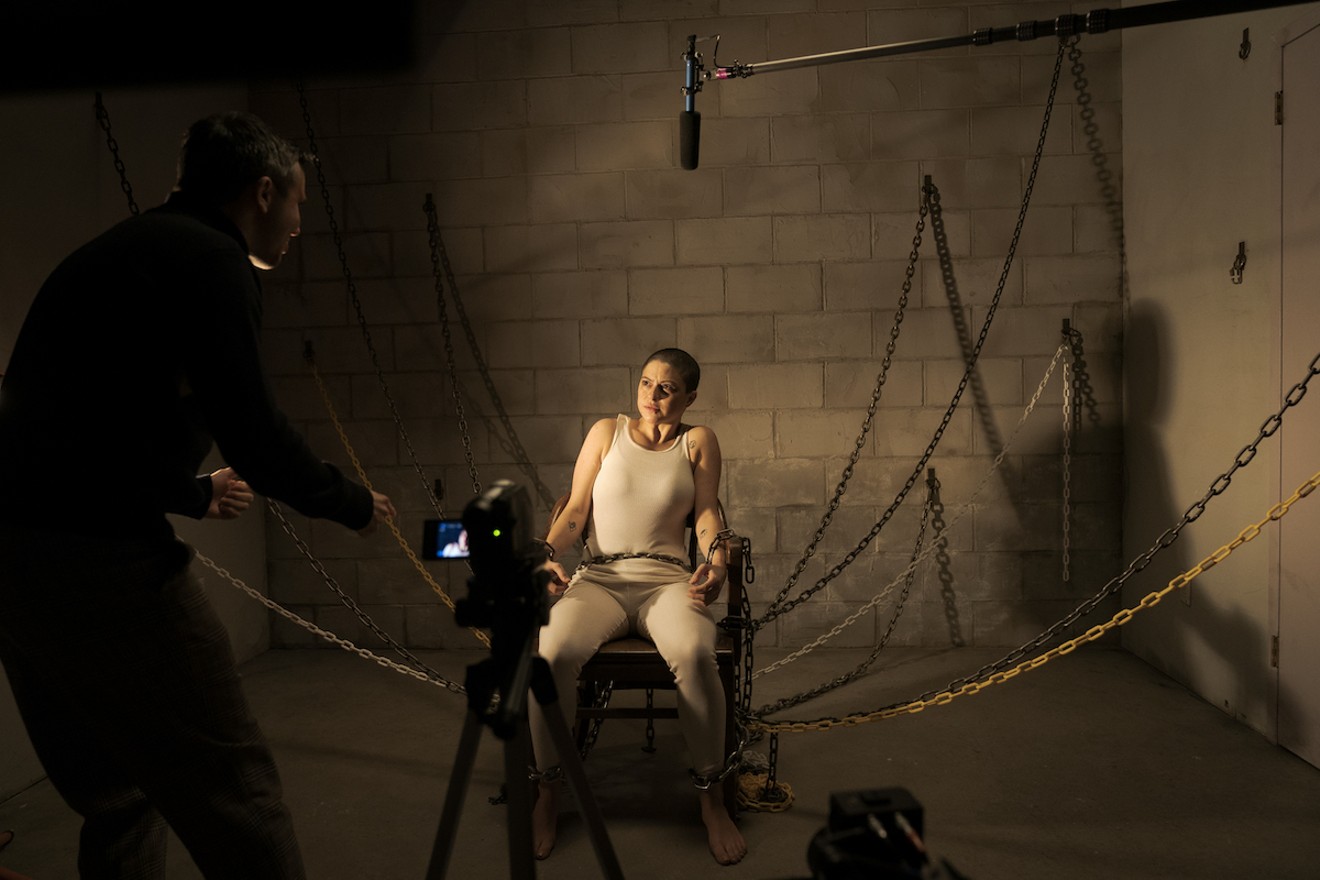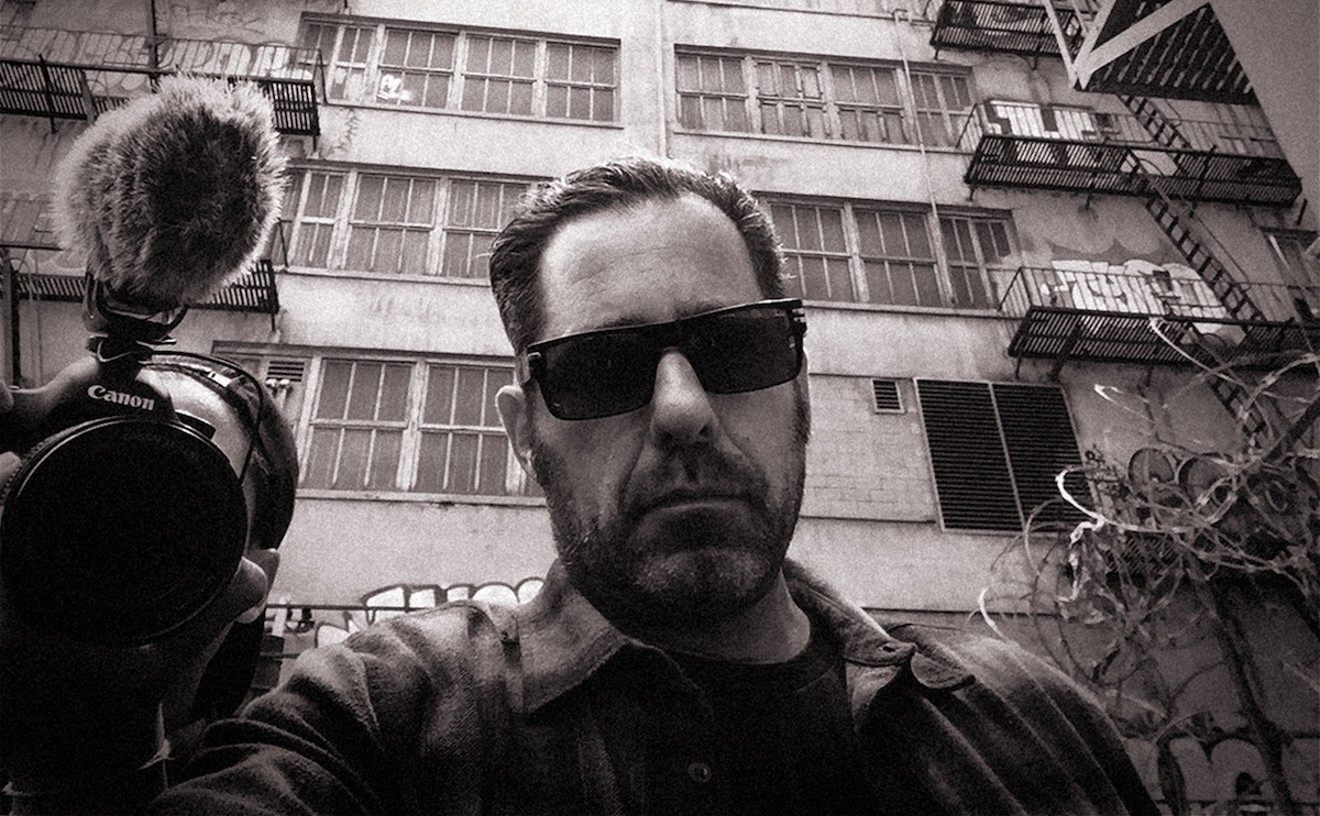The finale of Search Party's fourth season takes the idea of evolving identity quite literally and fitting for a show that has been very concerned with the concept of identity as its central theme.
In fact, in anticipation of the fourth season, premiering on HBO Max on Thursday, January 14, the streaming service launched an official podcast hosted by Saturday Night Live cast member Bowen Yang in which he discusses the show’s themes with its creative team and celebrity fans. A recent episode of the podcast even features series star and producer Alia Shawkat discussing the theme of identity.
After a 40-episode post-holiday binge of the entirety of Search Party, I must conclude that the show suffers from an identity crisis.
The series has been the little show that could when it transferred from TBS to HBO Max last summer after a lengthy hiatus. The latest season comes only six months after the end of its third season and continues to generate critical acclaim and a cult following spurred on by word of mouth. Paralleling its transition from cable to streaming, Search Party has excelled at reinventing itself season after season while maintaining a razor-sharp satirical eye on the experiences and blights of millennial culture. The plotting has been remarkably tight as every season picks up where the previous one left off, creating a thrilling intensity that invites binge-watching so integral to the streaming experience.
Yet, the Search Party creators Sarah Violet Bliss and Charles Rogers, along with mentor Michael Showalter, manage to shift tones with each season.
Set into motion when a figuratively lost twenty-something woman Dory (Shawkat) comes across a missing person poster for the literally lost Chantal Witherbottom (Clare McNulty), a tangential and inconsequential acquaintance from college, Search Party explores the uncertainty and malaise of the quarter-life crisis. Dory, aided by her inconsiderate boyfriend Drew (John Reynolds) and friends, the self-aggrandizing Elliot (John Early) and the incredibly vain and insecure Portia (Meredith Hagner), plays investigative detective, hoping that by finding Chantal, she may find herself. The first season plays like a millennial Nancy Drew before the second season transforms into a Hitchcockian examination of paranoia and guilt after a traumatic and transgressive event. Last season dived into the consequences of the foursome's actions as a courtroom drama that deftly dissected concepts of infamy and delusion in a post-truth society. These shifts in genre and tone have been exhilarating and impressive while maintaining the series's central focus and satirical bite.
The latest season, inspired by the horror genre, shifts gears again.
Each of the four characters finds themselves in a personal hellscape. Dory, who was kidnapped by "the Twink" at the end of season three, finds herself held captive by a deranged fan as if she is in an Instagram version of Stephen King’s Misery. Drew, horrified by what Dory has become and feeling guilty from his actions in the first two seasons, has fled to the eerily Merry Merry Land amusement only to discover that it is full of people escaping even darker pasts. Elliot starts working for a far-right news program as he morphs from urbane influencer into a version of Milo Yiannopoulos. The needy actress Portia lands an unexpected part in the movie about the trial in the third season only to be tormented and broken down by a director who doesn’t think she is right for the role. As if crafted by Jean-Paul Sartre, each hell is perfectly tailored to the defects in each flawed protagonist’s identity.
It feels as if season four will be all about karma and potential catharsis as the protagonists pay for their past crimes. However, the season shifts again midway as Drew, Elliot, and Portia attempt to escape their current predicaments by searching for Dory. They are convinced that Dory is not on a European sojourn as a poorly constructed Instagram feed has led them to believe. In a way, this cleverly brings the series full circle. However, this mini retread of the first season lacks the clarity of the original. Dory is extremely invested in finding Chantal as it is tied to her own sense of self. Drew, Elliot, and Portia are less motivated and invested, leading to a muddled and unidirectional pursuit.
Likewise, Dory’s storyline also meanders as she is trapped by her kidnapper (played by Cole Escola) who brings their typical zany energy to the show in a character inspired by HBO's true-crime series The Jinx. The production design of Dory’s dungeon, seemingly inspired by Michel Gondry music videos, might be one of this season's few highlights. But Dory herself yo-yos between escape attempts and Stockholm syndrome that becomes difficult to understand. She undulates between denial of her past actions and desire for punishment in a way that feels inorganic and gives whiplash.
Something feels fundamentally off about this season. There are funny parts and interesting ideas, but nothing gels together in a perfect fusion like previous seasons. The seventh episode, a standalone episode focused on Chantal Witherbottom disrupts any sense of momentum, further derails the season. The remaining final episodes do nothing to help either. A major issue is that the series almost feels like it is trying to redeem its characters who before this have been delightfully unredeemable. Yes, these characters say nice things about friendship, but they are all narcissistic. Like Seinfeld's main characters, they show no growth and only demonstrate the selfish fulfillment of their own individual desires. Once you strip the obliviousness of Dory, Drew, Elliot, and Portia to their own vapidness, you begin to cross the line from witty satire to heavy-handed and broad parody.
In season four, Search Party's characters become too self-aware, and it takes all the nuance and fun out of the show. The razor-sharp skewing of self-obsessed millennial identity evaporates when characters utter lines like, “I don’t know who I am. I don’t know where I belong. I don’t know where to go. I don’t know who to love,” or lament, “We are a lost generation.”
The season ends strangely and makes it difficult to determine if the final episode is a season finale or a series finale. (I’m still not exactly sure.) I would say that this season has painted itself in a corner by allowing its characters to identify and articulate their sense of aimlessness. Now that they themselves have said it, you can’t really laugh at it anymore.
Search Party season four premieres on HBO Max Thursday, January 14.
[
{
"name": "Air - MediumRectangle - Inline Content - Mobile Display Size",
"component": "19274298",
"insertPoint": "2",
"requiredCountToDisplay": "2"
},{
"name": "Editor Picks",
"component": "17482312",
"insertPoint": "4",
"requiredCountToDisplay": "1"
},{
"name": "Inline Links",
"component": "18711090",
"insertPoint": "8th",
"startingPoint": 8,
"requiredCountToDisplay": "7",
"maxInsertions": 25
},{
"name": "Air - MediumRectangle - Combo - Inline Content",
"component": "17482310",
"insertPoint": "8th",
"startingPoint": 8,
"requiredCountToDisplay": "7",
"maxInsertions": 25
},{
"name": "Inline Links",
"component": "18711090",
"insertPoint": "8th",
"startingPoint": 12,
"requiredCountToDisplay": "11",
"maxInsertions": 25
},{
"name": "Air - Leaderboard Tower - Combo - Inline Content",
"component": "17482313",
"insertPoint": "8th",
"startingPoint": 12,
"requiredCountToDisplay": "11",
"maxInsertions": 25
}
]












